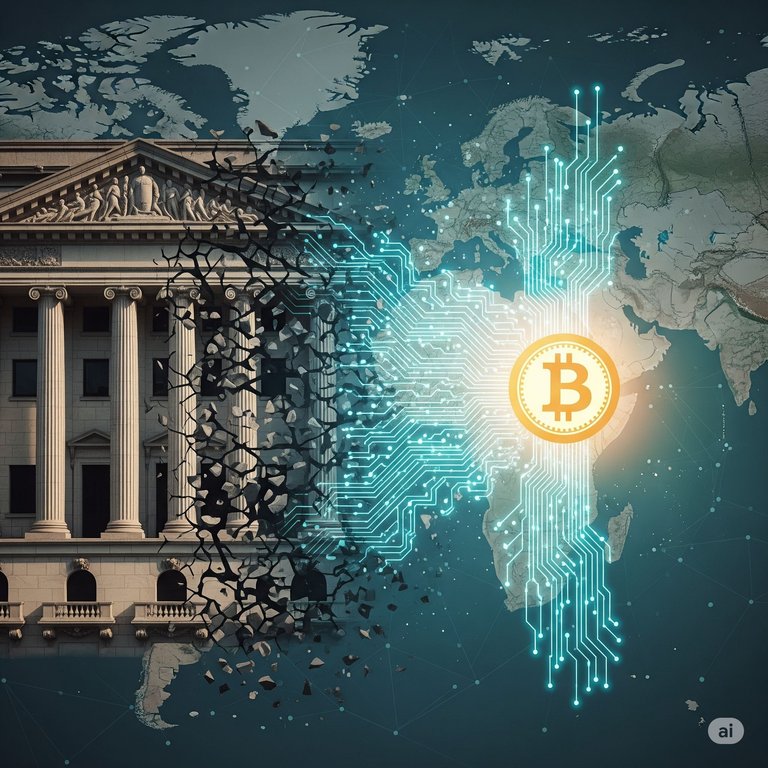From skeptic to supporter, the story of a former IMF chief economist’s confession
The world of traditional finance and the cryptocurrency universe have long been two entities separated by a high wall of mistrust. On one side, central bankers, economists from prestigious institutions like the International Monetary Fund (IMF), and cautious investors. On the other, tech enthusiasts, digital libertarians, and a new generation of investors who saw Bitcoin as a beacon of the future. That wall has been cracking for some time, but recently a massive chunk of it fell with a remarkable admission: a former IMF chief economist publicly admitted that he was fundamentally wrong about Bitcoin.

In Bitcoin’s early years, the attitude of most financial institutions was, at best, condescending. Critics labeled it a “speculative bubble,” a “Ponzi scheme,” or simply a digital currency with no intrinsic value. The central argument was that Bitcoin was unsupported by anything, had no central issuer, and therefore could not be a viable form of money. These were the voices I often heard, and the economist in question was one of the leading exponents of this ideology.
His views were anchored in classical economic theory, where value is derived from control, stability, and often the power of a state or central bank to impose a currency. Bitcoin, with its decentralized, pseudo-anonymous, and volatile nature, was the antithesis of everything that had been taught and practiced for centuries. From a certain point of view, it was logical to be skeptical. What he did not anticipate was its ability to survive and adapt.
For years, despite the vehement criticism, Bitcoin continued to thrive. The network became more secure, the ecosystem grew exponentially, and most importantly, it began to attract the interest of major institutional players. This relentless rise forced a re-evaluation of the initial vision.

The former IMF economist’s public recognition did not come from a sudden paradigm shift, but from a deep analysis of the market’s evolution. The decisive factor seems to have been Bitcoin’s demonstrated resilience and durability in the face of global economic crises and regulatory challenges. He realized that Bitcoin’s value lies not in a central bank or government, but in the network, its inherent security, and the trust of the community.
This change of perspective is crucial. He did not change his mind because Bitcoin’s price increased, but because he understood its essence: a decentralized form of money that cannot be politically manipulated and that operates independently of the traditional banking system. He admitted that his initial arguments, while valid from a 20th-century economic perspective, failed to take into account the fundamental innovation represented by blockchain technology.
Admitting a mistake, especially a public one, is an act of courage. When it comes from a figure of such authority, the gesture takes on enormous weight. This admission is not just a breaking news story; it legitimizes the entire crypto industry in a way that no price increase could.

The message is clear: even the strongest economic minds are forced to revise their beliefs in the face of reality. Once a member of the “elite” publicly admits that they underestimated Bitcoin, the door opens for others to reassess their position. This could accelerate the widespread adoption of cryptocurrencies, both by retail investors and by institutions that are still sitting on the sidelines.
Bitcoin has proven that it is not just an experiment, but a financial force to be reckoned with. And, from time to time, even the giants admit they were wrong. And in the world of finance, such an admission is worth more than a thousand optimistic statements.
For the full details of the economist’s statement, you can check out the original article on Cointelegraph. His conclusion to publicly admit an error in judgment highlights the importance of adapting to a constantly changing market. To delve deeper into this admission, we invite you to read the main article on Cointelegraph, titled Harvard economist admits he was wrong about Bitcoin crashing to $100.